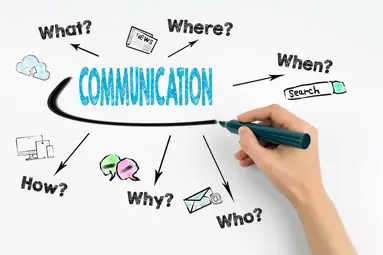Mastering Your Planning Skills for Workplace Excellence
Planning skills encompass the practical, everyday proficiencies that facilitate the management of workloads, task completion, and effective collaboration with peers. These skills encompass a range of abilities, such as critical thinking, attention to detail, and effective communication. This article from Aniday provides an overview about this skill and what you can do to improve it.

What is planning skill?
Planning involves a deliberate process of assessing tasks and objectives to prepare for their successful accomplishment. It plays a pivotal role in readiness for tasks, projects, activities, or any work-related situations. Planning is intricately connected with effective time management, scheduling, and organizational strategies.
The importance of planning
Planning plays a pivotal role in business by enabling company managers to establish an environment that harmonizes with the organization's overarching vision and objectives. This alignment fosters a cohesive work atmosphere, enhancing both the business's quality and its capacity to serve clients more efficiently.
In the corporate landscape, planning enhances organizational structure, thereby empowering employees to consistently optimize their productivity and effectiveness. A clear understanding of job roles and their contributions to the company's mission can significantly boost employee performance, particularly among new hires.
What are usually involved with planning abilities?
Mastering planning skills involves combining various other abilities, and understanding these components is essential to excel in this skill.
Critical thinking
Critical thinking serves as a crucial skill in the realm of planning, pivotal for decision-making and crafting timelines. For instance, it's instrumental in problem-solving within a project's strategy, facilitating the development of a revised sequence of steps to ensure timely completion.
Moreover, critical thinking proves invaluable in roles demanding independence, where you have the autonomy to set your own schedule and make decisions autonomously.
Negotiation
The art of negotiation is an invaluable asset in the realm of planning, as it empowers you to steer projects toward desired outcomes. One practical application might involve negotiating task assignments with team members, ensuring the optimal distribution of responsibilities. Effective negotiation skills bolster planning, contributing to the efficient management of specific tasks.
Attention to Detail
Attention to detail, a prized soft skill, proves indispensable in the planning process. It is the linchpin that allows for meticulous oversight of numerous small tasks, thereby preventing project derailment or delays stemming from overlooked or unattended work. A keen eye for detail simplifies the task of accounting for every project requirement, leaving no loose ends.
Communication
Effective communication holds substantial importance in various facets of a role, notably in the context of planning. For instance, the skill of attentive listening and clear information exchange with managers and colleagues significantly enhances the feasibility of planning complex tasks and extensive projects.
Furthermore, transparent communication regarding individual responsibilities, coupled with a comprehensive understanding of one's own tasks, serves as a tracking mechanism to gauge a project's progress over time.

Leadership
Leadership skills play a crucial role in the realm of planning and task delegation within a team. For instance, in a project leadership role, one is tasked with delineating specific responsibilities for team members and diligently following up on their contributions during the project's course.
Furthermore, the ability to inspire and foster collaboration is a pivotal skill in the planning process. It enables team leaders to ensure that work progresses according to the defined schedule, promoting timely completion.
Organization
Organizational skills are of paramount importance in enabling individuals to effectively manage multiple concurrent tasks. For instance, the ability to multitask across various projects necessitates meticulous organization and thoughtful planning to deliver successful outcomes for each endeavor.
Moreover, these organizational skills prove invaluable in the planning process for overall project success, ensuring that all team members possess the essential information needed to execute their respective roles.
What can you do to improve your planning skills?
Prioritize your tasks
Effective task prioritization involves identifying critical tasks from those that can be addressed later. It also entails the ability to break down your work into manageable segments, allowing for focused attention on one task at a time. This approach proves particularly beneficial when planning extensive projects with numerous components.
Start by creating a comprehensive list of all your intended tasks and the necessary steps to realize your plan. Next, arrange this list in order of priority, and commence working through the items in that sequence.
Apply time management
Time management revolves around the allocation of your time across various activities, ensuring they align with the goal of accomplishing your essential tasks. Effective time management optimizes the utilization of available time, enabling you to achieve more in less time.
To cultivate this skill, scheduling tools such as planners, diaries, schedules, and timetables can be instrumental in maintaining focus and staying on track.Practicing time management involves taking your list of priorities and associating a time estimate with each task, which might appear as follows:
-
Respond to email – 20 minutes
-
Management meeting – 45 minutes
-
Go to the printers – 30 minutes
Should you find that the total estimated time for tasks surpasses the time available, it becomes necessary to reevaluate your task priorities, considering potential adjustments or streamlining.

Integrate assets
The majority of projects and tasks necessitate the utilization of various resources. Resources encompass anything vital for task completion, ranging from financial resources to cover expenses, human resources or labor, to time and space resources. Larger projects often entail a combination of resource types.
In the planning phase of a project or task, it proves beneficial to deconstruct it into smaller components and contemplate the essential resources required. This includes assessing both the personnel and materials indispensable for task fulfillment. Maximizing the available resources at your disposal is instrumental in developing optimal products or strategies.
Work delegation effectively
Delegation involves the assignment of some of your responsibilities to others, making them accountable for task completion. It's a common and pivotal practice in the workplace, effectively distributing the workload.
For instance, if you determine that engaging external assistance, like a graphic designer, is necessary for content creation, you can opt to delegate this task to a team member. Delegation is significant not only for its practical benefits but also because it signifies trust in your team members' capabilities to shoulder additional responsibilities.
Consequently, it often leads to improved work quality and fosters an enhanced working environment.
Plan for the unexpected
While adhering to your meticulously crafted plan is the goal, maintaining a degree of flexibility is equally valuable. Being adaptable and capable of formulating alternative strategies based on specific circumstances and varying task workloads is essential.
Unforeseen situations can surface, and it's prudent to allocate time for addressing potential issues and obstacles. A rigid, tightly scheduled plan may not provide the leeway needed to effectively tackle unexpected challenges.
Conclusion
Planning skills are valuable skills that enhance success and reduce stress. They simplify tasks, making life easier. This skill is particularly beneficial when handling multiple or complex tasks. We hope that this article from Aniday helps you explore their significance and useful tips for your skill development.
Aniday's HR Services
Headhunting Service
Find and recruit quality candidates in just 1 week! Supported by 40,000 experienced headhunters in IT, Finance, Marketing… capable of recruiting in any region.
Headhunting Service ➔Employer of Record (EOR) Service
On behalf of your business, we recruit employees and handle payroll without the need to establish a company in markets such as Vietnam, Singapore, Malaysia, India, Indonesia…
Employer of Record (EOR) Service ➔